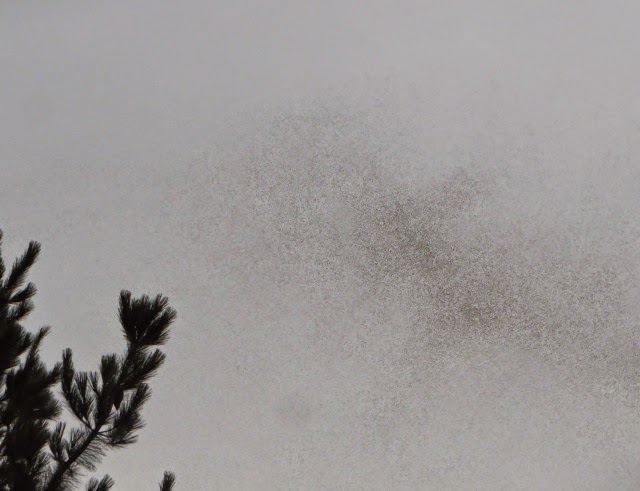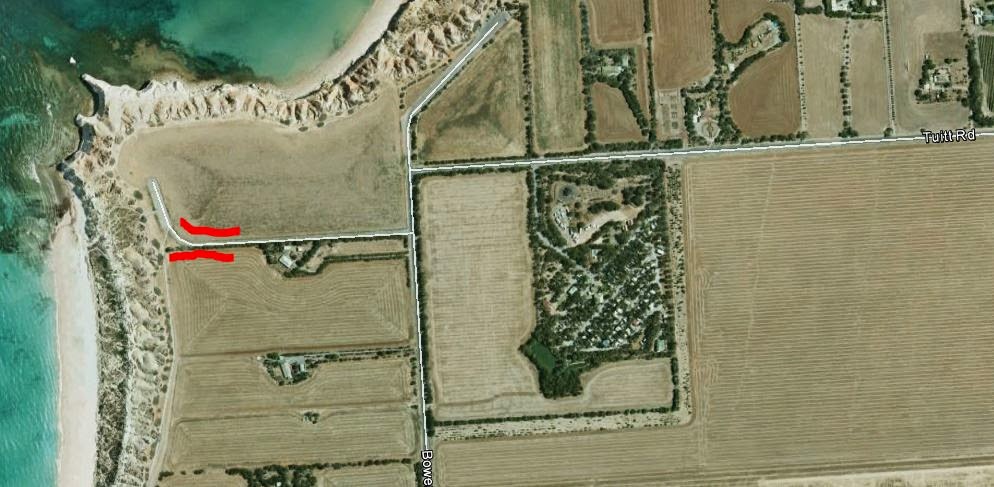Some book reviews.
I'll begin with "A History of birdwatching in 100 Objects" by David Callahan. It is really a very interesting book dealing with things ranging from
- Arnhemland rock painting (~45,000 years ago); via
- a stuffed dodo (~320 years ago and a total fraud); to
- eBird (surprisingly 13 years ago).
The overall layout of the book is a photograph of the object on the RH page and a page or a bit more of text on the left. The text generally puts the object in historical context and then explains how it was important for the development of birdwatching. I generally found the first half of the book more interesting that the second. I think that is because the earlier endeavours were more about the development of concepts, while the latter stages were more about equipment.
In summary well worth a read.
My second book is "Whose bird?" by Bo Beolens and Michael Watkins. This is devoted to people whose names are reflected in the common names of birds.
What I have just realised is that it is necessarily Anglocentric as the vernacular names differ from language to language. By way of example:
A very interesting book and reading through it develops an understanding of the history of birding from a different perspective.
The 'c' word appears very frequently - I mean of course 'collector' but other 'c' words, which don't appear, might also be appropriate. This is of course a euphemism for the 'k' word - killer - and there are a few examples where it seems the collected specimen was the last of its species. This exemplified by Brace's Emerald, a hummingbird "... known only from a single specimen taken by Brace ...".
That is of course merely reality: it is how birding used to be done under the ethos of "What's hit is History and what's missed is Mystery." It was nice to read of Mr W Luder who "was a German naturalist who was collected in Cameroon n 1872." The birds strike back? I think it more likely the 'was' is redundant as he lived until 1873. There were quite a few other typos through the book but they generally don't distract badly from the narrative. Good both as a read, and as a reference work.
(Incidentally Bo Beolens is better known in birding on-line circles as the Fat Birder.)
Going backwards for a couple of sentences, one of the object in Book 1 was the "#88 Open Diary Blog" from 1994. After describing the history of blogging they say "blogs "... routinely feature other quirky subjects from pies to indie music ..." Thus it is conceptally OK for a mainly natural history blog to include a more literary book as #3.
This is "The Uncommon Reader" by Alan Bennett. The basic plot is that the Queen of England (and, temporarily one hope's, Australia) becomes an avid reader which causes chaos in the country. Herself is depicted very sympathetically in the book - causing some angst to the socialist reviewer from the Grauniad. Most other characters, including politicians, administrative hangers-on and the literary elite get large serves from time to time.
Both Frances and myself laughed out loud quite frequently at the book. Sample line (after the chauffeur is told to read while waiting for the Queen to emerge from the Northampton Town Hall)
In summary well worth a read.
My second book is "Whose bird?" by Bo Beolens and Michael Watkins. This is devoted to people whose names are reflected in the common names of birds.
What I have just realised is that it is necessarily Anglocentric as the vernacular names differ from language to language. By way of example:
- Pallas' Fish-Eagle (Haliaeetus leucoryphus) is named after a German zoologist but the German name given in Avibase is Bindenseeadler (which translates as something like Banded Sea Eagle). Of the 16 European character languages given in Avibase for this species only 6 include a reference to Pallas.
- For Darwin's Nothura (Nothura darwinii - a quail-like bird from the altiplano and steppes of South America) 13 languages refer to Darwin in one way or another!
- Gilbert's Whistler Pachycephala inornata refers to the honoured gentleman in question in 4 languages.
A very interesting book and reading through it develops an understanding of the history of birding from a different perspective.
The 'c' word appears very frequently - I mean of course 'collector' but other 'c' words, which don't appear, might also be appropriate. This is of course a euphemism for the 'k' word - killer - and there are a few examples where it seems the collected specimen was the last of its species. This exemplified by Brace's Emerald, a hummingbird "... known only from a single specimen taken by Brace ...".
That is of course merely reality: it is how birding used to be done under the ethos of "What's hit is History and what's missed is Mystery." It was nice to read of Mr W Luder who "was a German naturalist who was collected in Cameroon n 1872." The birds strike back? I think it more likely the 'was' is redundant as he lived until 1873. There were quite a few other typos through the book but they generally don't distract badly from the narrative. Good both as a read, and as a reference work.
(Incidentally Bo Beolens is better known in birding on-line circles as the Fat Birder.)
Going backwards for a couple of sentences, one of the object in Book 1 was the "#88 Open Diary Blog" from 1994. After describing the history of blogging they say "blogs "... routinely feature other quirky subjects from pies to indie music ..." Thus it is conceptally OK for a mainly natural history blog to include a more literary book as #3.
This is "The Uncommon Reader" by Alan Bennett. The basic plot is that the Queen of England (and, temporarily one hope's, Australia) becomes an avid reader which causes chaos in the country. Herself is depicted very sympathetically in the book - causing some angst to the socialist reviewer from the Grauniad. Most other characters, including politicians, administrative hangers-on and the literary elite get large serves from time to time.
Both Frances and myself laughed out loud quite frequently at the book. Sample line (after the chauffeur is told to read while waiting for the Queen to emerge from the Northampton Town Hall)
"I have to watch the motor ma'am. This is the Midlands. Vandalism is universal."Well worth finding and reading. Although I suspect it is on the banned list at Country Life. On thinking about the tome afterwards - always a sign of a good read - there was a lesson about naming birds in it: never do anything to upset anyone (not that Bennett's Queen adheers to that in the end).



Comments